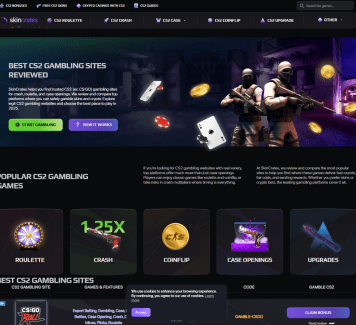
In today’s digital age, the allure of gambling is more accessible than ever before. Whether it’s placing bets on sports events, spinning the reels of online slots, or testing your luck at a local casino, the thrill of the game can be both exhilarating and addictive.
Unfortunately, for some individuals, what starts as harmless entertainment can quickly spiral into a detrimental habit known as a gambling addiction. Fortunately, we will delve into the depths of gambling addiction, exploring its signs, causes, and potential consequences while Birches Health sheds light on the available help and treatment options.
Symptoms of Gambling Addiction
Identifying the signs of gambling addiction is crucial for early intervention. While the severity may vary, common symptoms include:
- Preoccupation with gambling
Constantly thinking about past gambling experiences, future bets, or ways to obtain money for gambling.
- Inability to control gambling
Repeated failed attempts to stop or reduce gambling activities.
- Increased tolerance
Needing to gamble with larger amounts of money or for longer durations to experience the same level of excitement.
- Restlessness and irritability
Feeling restless or agitated when attempting to cut back on gambling.
- Chasing losses
Engaging in “chasing” behavior, where individuals try to recover losses by gambling even more, leads to a vicious cycle of financial strain.
- Neglecting personal and professional responsibilities
Prioritizing gambling over family, work, or social obligations.
- Concealing or lying about gambling
Attempting to hide the extent of gambling activities from loved ones.
- Financial distress
Accumulating significant debts, borrowing money, or resorting to illegal activities to finance gambling habits.
Understanding the Causes of Gambling Addiction
The development of gambling addiction is complex and influenced by a combination of genetic, environmental, and psychological factors. Some individuals may be more predisposed to addiction due to their family history, while others may turn to gambling as a means of escape from stress, depression, or anxiety.
Furthermore, the constant availability and easy access to online gambling platforms have contributed to the rise in gambling addiction cases, intensifying the urge to gamble and reducing inhibitions.
The Devastating Effects of Gambling Addiction
- Financial Consequences
Gambling addiction often leads to severe financial distress. Individuals may accumulate substantial debts, deplete their savings, or borrow money from friends, family, or even illegal sources. The pursuit of recouping losses can lead to a vicious cycle of further financial ruin, jeopardizing one’s livelihood and stability.
- Emotional and Mental Health Issues
The emotional toll of gambling addiction can be immense. Individuals may experience guilt, shame, and self-blame, significantly impacting their self-esteem and overall mental well-being.
Anxiety and depression are commonly associated with gambling addiction, as financial problems and the constant urge to gamble affect one’s emotional stability.
- Strained Relationships
Gambling addiction often strains personal relationships with spouses, children, or friends. The secrecy and deceit surrounding gambling habits can erode trust and lead to emotional distance. Family members may suffer from emotional stress, financial burdens, and a sense of betrayal, leading to strained or broken relationships.
- Occupational and Educational Challenges
Gambling addiction can severely impact an individual’s professional life. The preoccupation with gambling and financial difficulties may lead to absenteeism, poor job performance, or even job loss. Additionally, students with a gambling addiction may struggle academically, neglecting their studies and compromising their educational goals.
- Seeking Professional Help
Recognizing the presence of gambling addiction is the first step toward recovery. Consulting a professional therapist or counselor or joining support groups like Gamblers Anonymous can provide guidance and support. These resources offer a safe space to share experiences, learn coping mechanisms, and develop strategies to overcome addiction.
- Establishing a Support System
Building a strong support system is crucial during the recovery process. Friends, family, and loved ones can offer encouragement, understanding, and accountability. Sharing experiences and seeking support from those who have successfully overcome gambling addiction can inspire and motivate individuals on their journey to recovery.
- Developing Healthy Coping Mechanisms
Replacing unhealthy gambling habits with positive coping mechanisms is key to long-term recovery. Engaging in alternative activities like exercising, pursuing hobbies, or joining social groups can help fill the void left by gambling. Developing healthy ways to manage stress and emotions is essential in preventing relapse.
- Financial Management and Responsibility
Recovering from gambling addiction requires a commitment to financial responsibility. Seeking professional assistance in managing debts, creating budgets, and establishing financial goals can help individuals regain control over their finances. Learning to differentiate between wants and needs and practicing responsible spending habits is vital to achieving financial stability.
Preventing Gambling Addiction
Understanding the warning signs and implementing preventative measures can minimize the risk of developing a gambling addiction. Let’s explore practical tips and strategies to help safeguard against gambling addiction.
- Recognize the Warning Signs
The first step in preventing gambling addiction is knowing the warning signs. These signs can include a preoccupation with gambling, an inability to control or limit gambling behavior, using gambling as an escape from stress or other problems, and experiencing financial difficulties due to gambling. By recognizing these signs early on, individuals can take proactive steps to address the issue before it escalates.
- Set and Stick to a Budget
Establishing a gambling budget is a crucial aspect of responsible gambling. Determine how much money you can afford to lose and never exceed this limit. Treat gambling as entertainment rather than a means to make money. Setting a budget and adhering to it allows you to enjoy gambling without risking financial hardship.
- Time Management
Effective time management plays a vital role in preventing gambling addiction. Set specific time limits for gambling activities and stick to them. Allocate time for other activities, such as hobbies, exercise, and spending time with loved ones, to ensure a balanced lifestyle. By diversifying your interests and managing your time effectively, you reduce the likelihood of becoming overly engrossed in gambling.
- Avoid Chasing Losses
One of the most common pitfalls in gambling is chasing losses. It is important to remember that gambling outcomes are based on chance, and there is no guaranteed way to win. If you find yourself on a losing streak, resist the urge to keep gambling in the hope of recouping your losses. Accepting losses as part of the gambling experience and walking away when you reach your predetermined limit is essential to prevent addiction.
- Seek Support and Counseling
If you suspect you or someone you know is developing a gambling problem, seeking support is crucial. Contact trusted friends, family, or professionals who can guide and assist. Numerous organizations and helplines are also dedicated to helping individuals with gambling addiction. Remember, asking for help is a sign of strength, and early intervention can make a significant difference in overcoming addiction.
- Utilize Gambling Blocking Software
Various gambling-blocking software options can help restrict access to gambling websites and apps. These tools can be particularly useful for individuals who struggle with self-control. Installing gambling-blocking software on devices can be an additional barrier, making engaging in impulsive gambling behavior harder.













